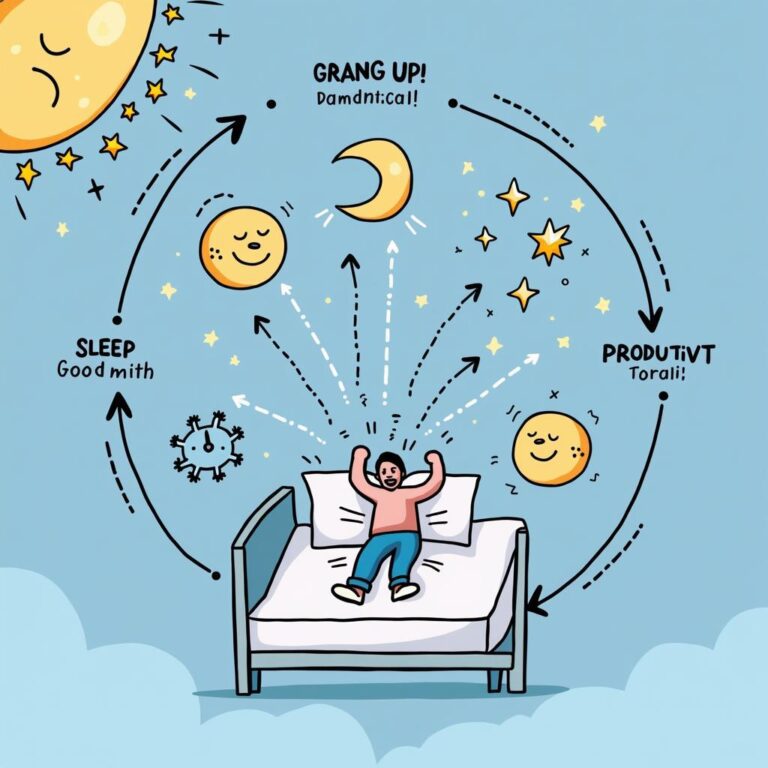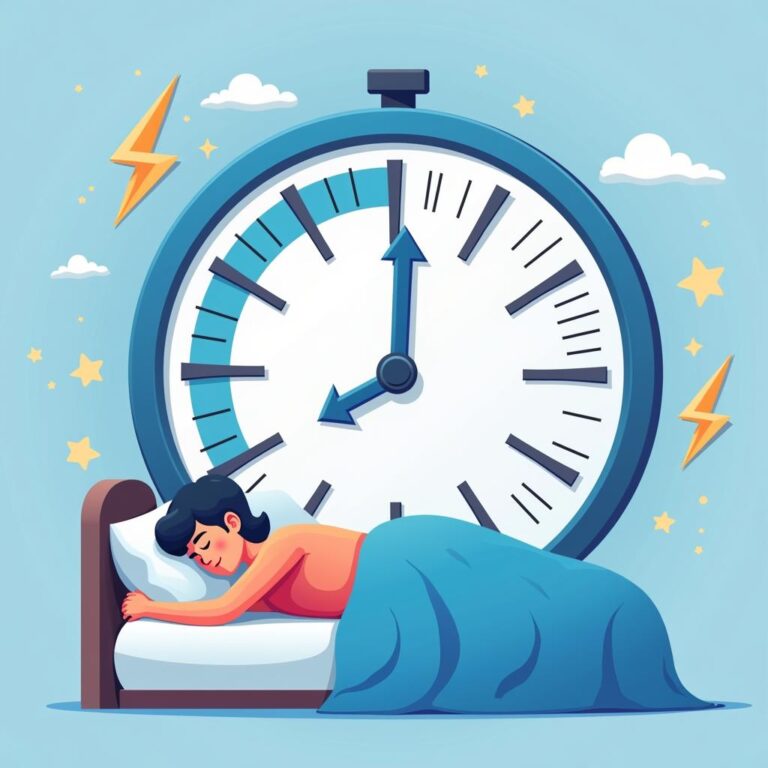Understanding sleep is crucial for maintaining mental clarity and focus throughout the day. The sleep cycle consists of various stages, each playing a significant role in restoring our cognitive functions. This article delves deep into the different sleep cycle stages and how they specifically affect your ability to concentrate and perform effectively in daily activities.
What Are Sleep Cycle Stages?
The human sleep cycle comprises two main types of sleep: Non-Rapid Eye Movement (NREM) and Rapid Eye Movement (REM) sleep. These stages repeat throughout the night in several cycles, typically lasting about 90 minutes each. Here’s a closer look at the stages:
NREM Stage 1
This is the lightest stage of sleep, often described as the transition from being awake to falling asleep. During this stage, you may experience a sensation of falling, which can cause a sudden muscle contraction. Typically lasting a few minutes, this phase prepares your body for deeper sleep.
NREM Stage 2
In this stage, your heart rate slows down, and your body temperature drops. Brain waves become slower, with occasional bursts of rapid brain activity known as sleep spindles. Stage 2 constitutes about 50% of the total sleep cycle and is crucial for memory consolidation, enhancing alertness and focus when you wake up.
NREM Stage 3
Also known as deep sleep or slow-wave sleep (SWS), this stage is vital for physical recovery and growth. The body repairs tissues, builds bone and muscle, and strengthens the immune system. Disruptions during this stage can severely impact your focus and cognitive performance the next day.
REM Sleep
REM sleep first occurs about 90 minutes after you fall asleep. It is characterized by rapid eye movements, increased brain activity, and vivid dreams. This stage plays a crucial role in emotional regulation, memory processing, and learning. A sufficient amount of REM sleep is essential for maintaining focus and mental clarity.
The Impact of Sleep Cycle Stages on Focus
Now that we have dissected the sleep cycle stages, let’s explore how each stage specifically impacts your focus and cognitive abilities.
Stage 1: The Gateway to Focus
Though this initial stage seems light and fleeting, it sets the foundation for what’s to come. A poor transition from this stage into deeper sleep can leave you feeling groggy and mentally foggy, making concentration challenging. Ensuring smooth progression into deeper sleep stages is vital for optimal focus levels.
Stage 2: Consolidation of Information
During NREM Stage 2, your cognitive functions start to strengthen. This stage is critical for the consolidation of information learned throughout the day. Studies have shown that good sleep habits enhance problem-solving skills and creativity, as the brain uses this time to organize and integrate new information. If you consistently miss out on this stage due to sleep deprivation, you may find it harder to concentrate and perform at your best.
Stage 3: Physical Restoration and Focus
Deep sleep, or NREM Stage 3, is crucial for physical and mental rejuvenation. During this stage, your body goes into a restorative mode. A lack of deep sleep can lead to fatigue, irritability, and diminished focus. If you wake up frequently during this stage, it can disrupt the release of growth hormone, which is vital for physical recovery and mental performance.
REM Sleep: The Key to Emotional and Cognitive Balance
REM sleep is indispensable for optimal cognitive function, particularly for maintaining focus and emotional stability. This stage allows the brain to process emotions and experiences, which can boost your mood and enhance overall focus during waking hours. Insufficient REM sleep has been linked to poor concentration and decision-making abilities.
How to Optimize Your Sleep Cycle for Better Focus
To ensure maximum focus and cognitive function throughout the day, it’s essential to cultivate healthy sleep habits. Here are some tips on optimizing your sleep cycle:
1. Maintain a Consistent Sleep Schedule
Going to bed and waking up at the same time every day helps regulate your internal clock, ensuring you cycle through the stages of sleep effectively. Consistency reinforces your body’s natural rhythms, enabling you to experience each sleep stage fully.
2. Create a Relaxing Bedtime Routine
Establishing a relaxing pre-sleep routine can signal your body that it’s time to wind down. Activities such as reading, taking a warm bath, or practicing meditation can promote tranquility and ease the transition into the sleep cycle.
3. Limit Blue Light Exposure
Electronic devices emit blue light, which can interfere with melatonin production, making it harder to fall asleep. Limiting screen time at least one hour before bed can improve your overall sleep quality.
4. Optimize Your Sleep Environment
Your bedroom should be conducive to sleep. Consider factors such as temperature, light, and noise. A dark, quiet, and cool environment is ideal for facilitating deep sleep stages.
5. Mind Your Diet
What you eat can significantly impact your sleep quality. Avoid heavy meals, caffeine, and alcohol before bedtime. Instead, opt for light snacks that promote sleep, such as bananas or oatmeal, which can enhance both the depth and quality of your sleep.
Conclusion
Understanding sleep cycle stages and their impact on focus is crucial for anyone looking to improve their cognitive performance and productivity. By prioritizing restorative sleep and developing healthy sleep habits, you can significantly enhance your ability to concentrate, making you more effective in both personal and professional spheres. Remember, quality sleep is not just a luxury; it’s a necessity for optimizing your life.







